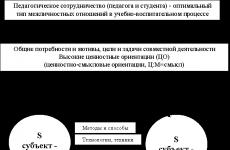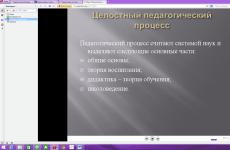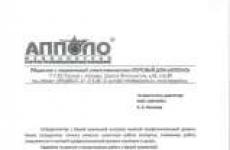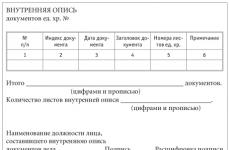1998 Olympics ice hockey game results. Olympics in Nagano. Winter Olympics in Nagano. In the Russian national team, everyone is from the NHL, except for one
At the hockey tournament of the 1998 Winter Olympics in Nagano, for the first time in the history of the Olympics, 2 sets of medals were played: for the 19th time - for men and for the 1st time - for women.
Also, for the first time in the history of the Games, the world's strongest hockey players had the opportunity to come to the Olympics. For the first time in more than 80 years of history, the IIHF and the NHL managed to reach an agreement. Finally, the commissioner of the richest hockey league in the world decided to announce a break in February so that all the most worthy would have the opportunity to play in Nagano. The NHL management came to the obvious conclusion that the Olympics with the participation of all the stars would be the best advertisement for the American-Canadian championship. Well, if one of the North American squads won this championship, the ratings of the National League would skyrocket.
In addition, hockey experts have not yet forgotten the excellent, and most importantly, very effective game of the USA and Canada national teams at the World Cup two years ago. "Stars and Stripes" and "maple-leaved" hockey players reached the final at that tournament. That is why the overwhelming majority of overseas specialists predicted that it was these teams that would meet in the decisive match of the Japanese Games, defeating all rivals on their way. However, the Russians, Swedes, Finns, and most importantly the Czechs, had their own opinion on this matter.
Leaders of the Czech national team: Jaromir Jagr and Petr Svoboda
True, there really is someone, and the Russian players at this tournament were definitely not ranked among the favorites. It's scary to imagine that in the last four world championships, the Russians could not even win a bronze medal, and in the IIHF ranking they took a very unpretentious sixth place.
At the same World Cup, Russian hockey players performed well for that time, reaching the semifinals. But the conflict between the Russian Ice Hockey Federation and Russian NHL players has grown to simply unimaginable proportions. We will not now return to the various accusations that the sides expressed against each other. Who was right then, who was wrong, now does not matter at all.
Disputes are forgotten, but the facts remain, and they were not at all in favor of the Russian national team. While the players in other national teams were simply eager for the Olympics, our hockey players began to massively refuse to participate in it. Decided to skip the main sporting event of the fourth anniversary Vyacheslav Fetisov, Nikolay Khabibulin, Igor Larionov, Alexander Mogilny, Sergey Zubov, Vyacheslav Kozlov... Many others, in particular Alexander Karpovtsev, Alexey Kovalev and Andrey Nikolishin, were injured shortly before the Games.
The real trouble for the Russians was with the goalkeepers. Khabibulin, who did not go to the tournament, was the only main NHL goalkeeper from Russia. "Collections" Mikhail Shtalenkov and Andrey Trefilov had very little experience in matches in the strongest league in the world, and they had little game practice.
But even so, the composition of the Russian national team was more than stellar. Both brothers arrived Bure, Alexey Zhamnov, Sergey Gonchar, Alexey Yashin, Andrey Kovalenko, Sergey Fedorov.

The group of the Russian national team at the Olympic tournament was considered much weaker than the parallel four. Experts believed that only the goodwill of fate saved the Russians from meeting with the favorites of the Americans and Canadians, as well as strong Swedes. However, as it turned out later, it was in our "light" group that all future Olympic medalists gathered. It all started more than successfully for the Russian team. In battles for the honor of the tricolor wingmen Vladimir Yurzinov the Olympians first smashed the Kazakhs 9: 2, then snatched a strong-willed victory from the Finns 4: 3 and managed to defeat the Czech team 2: 1.
In the last match after the second period, the Russians were behind 0: 1 and tried to recoup for a long time. However, the famous Czech goalkeeper Dominik Hasek was just phenomenal. He beat off everything that flew into his gate, but this could not last forever. As a result, Aleksey Zhamnov and Valery Bure nevertheless punched the legendary Czech.
And in the other group, meanwhile, the US team, having lost to the Swedes in the first round, remained only in third place, thus securing a meeting with Hasek and company. As it turned out, she provided for her misfortune. There were only two unpredictable fights in the quarterfinals: the northern derby of Sweden and Finland, which ended with the victory of the Suomi team, and just the game of the Czech Republic with the United States. In this meeting, the team led by Jaromir Jagrom and Dominator missed the first, but in the second game segment she defeated the Americans, and in the third she only strengthened her success - 4: 1. Russia and Canada, by the way, with the same score, as expected, outplayed the Belarusians and Kazakhstanis, respectively.
In the first semifinal, the Czechs, having already proved that they are a formidable force, managed not to lose to the Canadians either in regulation time or in overtime. And in the shootout, even the founders of hockey were unable to resist Hasek. The Russians and the Finns, in turn, gave out a real scoring extravaganza. Until the score 4: 4, the game went like a swing, but in the final twenty minutes the fifth goal of our team was scored by Andrey Kovalenko, and then we put the squeeze on the opponent with two more goals. Note that five of the seven goals in the Russian squad were scored by Pavel Bure, who was later recognized as the best striker and sniper of the tournament.

Hockey tournament semi-final. Russia - Finland - 7: 4

Pavel Bure
The disappointed Canadians, almost without resisting, lost the fight for the bronze medals to the Finns 3: 2. But in the final meeting, the Russian national team, which already achieved more than was expected of it, did not play against the Czech Republic. The scenario of this game was very similar to the first match of the Slav squads in the tournament. All the same massive attacks by the Russians, the same goal scored by the Czechs, and the same inaccessibility of the goalkeeper, who never missed.

Russian national team defender Darius Kasparaitis uses force against Czech striker Jiri Dopita
After this meeting, none of the Russian players had smiles on their faces, despite the undoubted success - the won silver. The conceded goal was completely optional. After a throw-in in the zone of the Russian team, the Czechs won the puck and brought the defender to the throw. He threw, and the projectile ricocheted from the hand of our striker flew into the goal. An offensive defeat for which Russian hockey players took revenge in Salt Lake City four years later, but they never won the Olympics.

The joy of Czech hockey players

Czech national team - winners of the hockey tournament in Nagano
Women's league
For the first time in the history of the Olympic Games, a women's ice hockey tournament was organized. According to the results of the Women's World Championship, the four strongest teams and China, as well as the hostess Japan, played in one round "each with each". According to the results of the tournament, the teams that took the third and fourth places played the match for the third place, and the teams that took the first and second places played the final match. In the decisive confrontation, the Americans outplayed the Canadian national team 3: 1, and in the game for the bronze, the Finnish team defeated the Chinese women 4: 1.

American women became the first Olympic ice hockey champions in history
Despite the small list of participants, the games showed a major breakthrough in the sport, and it was hoped that the event would help attract large financial flows.
Not without a scandal at these Games. Angry about the failure, American hockey players made a row and broke furniture in their rooms in the Olympic Village, causing material and moral damage to the organizers.
The most "Russian" team in the tournament was the national team of Kazakhstan, all of whose players were ethnic Russians. But the Russian national team included a Ukrainian and a Lithuanian.
Before the Games began, the NHL decided to host several exhibition matches in Japan to instill interest in hockey among the Japanese. After that, impressionable Asians, according to rumors, simply "got sick" with the game with a stick and a puck. They could hardly understand the rules, but they kept the atmosphere great.
The best goalkeeper of the tournament, Dominik Hasek, had a clean sheet only in the first and last matches of the championship.
All winners:
Men
1. Czech Republic
Goalkeepers: Dominik Hasek, Milan Gnilichka, Roman Chekhmanek.
Defenders: Petr Svoboda, Roman Hamrlik, Jiri Schlegr, Richard Schmeglik, Frantisek Kuchera, Jaroslav Shpachek, Libor Prochazka.
Forwards: Pavel Patera, Jaromir Jagr, Martin Ruchinsky, Robert Reichel, Vladimir Ruzicka, Jiri Dopita, Martin Straka, Robert Lang, Martin Prochazka, Josef Beranek, David Moravets, Milan Heyduk, Jan Chaloun.
Trainers: Ivan Glinka, Slavomir Lehner, Vladimir Martinets.
2. Russia
Goalkeepers: Mikhail Shtalenkov, Andrey Trefilov, Oleg Shevtsov.
Defenders: Dmitry Mironov, Sergey Gonchar, Alexey Zhitnik, Darius Kasparaitis, Igor Kravchuk, Boris Mironov, Alexey Gusarov, Dmitry Yushkevich.
Forwards: Pavel Bure, Alexey Yashin, Sergey Fedorov, Andrey Kovalenko, Alexey Morozov, Alexey Zhamnov, Valery Zelepukin, Valery Kamensky, Valery Bure, Sergey Nemchinov, German Titov, Sergey Krivokrasov.
Trainers: Vladimir Yurzinov, Petr Vorobyov, Zinetula Bilyaletdinov.
3. Finland
Goalkeepers: Yarmo Mullys, Ari Sulander, Jukka Tammi.
Defenders: Jani Ninimaa, Kimmo Timonen, Teppo Numminen, Jyrki Lumme, Aki-Petteri Berg, Janne Laukkanen, Tuomas Grönman.
Forwards: Teemu Selanne, Saku Koivu, Jere Lehtinen, Jari Kurri, Ville Peltonen, Mika Nieminen, Raimo Helminen, Esa Tikkanen, Kimmo Rintanen, Sami Kapanen, Juha Lind, Juha Yulonen, Antti Törmänen.
Trainers: Hannu Aravirta, Esko Nokelainen, Jari Kaarela.
Women
1. USA
Sarah DeCosta, Sarah Tueting, Chris Bailey, Colleen Coyne, Sue Merz, Tara Munsey, Vicky Movsesian, Angela Ruggiero, Laura Baker, Alana Blahosky, Lisa Brown, Karyn Bye, Tricia Dune, Cammy Granato, Katie King, Shelley Lunydal, Jenny Schmiguel , Gretchen Julion, Sandra White.
2. Canada
Lesley Raddon, Manon Rehom, Teresa Brisson, Cassie Campbell, Judy Didac, Geraldine Heani, Becky Kellar, Fiona Smith, Jennifer Botteril, Nancy Drolet, Laurie Dupuis, Daniel Goyett, Jaina Hefford, Karentie McCormer -Luis, Vicki Sunohara, Hayley Wickenheiser, Stace Wilson.
3. Finland
Lisa-Maria Snack, Tuula Puputti, Emma Laaksonen, Kirsi Haninen, Katia Lehto, Satu Huotari, Johana Ikonen, Maria-Helena Palvila, Payvi Salo, Marian Ihalainen, Sari Frisk, Rikka Nieminen, Maria Celine, Tia Reyma, Sari Vaarakallio, Sanna Lankosaari, Marika Lehtimaki, Katia Ripi, Carolina Rantamaki.
History of the Winter Games (ISI) - a series before the Pyeongchang Olympics. We write only about the most interesting and important things - without water, pathos and cliches.
Nagano 1998
Host country: Japan
2176 athletes
72 country
68 sets of medals
Key facts about Nagano 1998
For the first time, the number of athletes exceeded 2000. During the Olympics, there was an earthquake of 5 points, no one was hurt, but many were frightened.
The first ever Olympic snowboarding champion from Canada, Ross Rebalyatti, was immediately caught using marijuana. Two days later he was acquitted. The embarrassment was that they forgot to ban marijuana.
In figure skating, Russia won three out of four golds. The fourth went to 15-year-old American Tara Lipinski, the youngest individual winter champion.
Tara Lipinski

Snowlet owls became mascots

Sumo wrestlers at the opening ceremony
In the Russian national team, everyone is from the NHL, except for one
The Olympic hockey tournament in Nagano caused a huge stir. The last restrictions on the pros were removed, and the strongest teams arrived in Japan. The NHL has announced a hiatus.
The Russian national team was completely made up of NHL players (with the exception of the third goalkeeper Oleg Shevtsov), but many stars refused to participate: Fetisov, Larionov, Mogilny, Khabibulin, Zubov. The refusal was connected with the failure of our Dream Team at the 1996 World Cup, as well as with some terrible incidents (the assassination of the president of the FHR a year earlier).
CBS broadcaster paid the IOC $ 375 million to broadcast the tournament. The unsuccessful performance of Canadians (4th place) and Americans (1/4 drop) thwarted CBS's plans. The main disappointment of the tournament was 37-year-old Wayne Gretzky. This was his first and last chance to win the Olympics. For the entire tournament, he did not score a single goal, marking only four assists. In the semifinals, the Canadians' coach did not even entrust Gretzky with the bullet.
And the main characters were Pavel Bure (five goals in the semifinals with the Finns!) And Czech goalkeeper Dominik Hasek. The Great Dominator saved all five Canadian shots in the semifinals, and kept the goal clean in the final against Bure and Co.
The rival of our team was the sensation of this tournament - the German team. 20 years ago, our Olympians stopped one step away from triumph, losing the palm to the Czechs. We remember how that match turned out.
48th minute of the game, 0: 0. Jagr and Josef Beranek flee in a counterattack. Beranek makes one shot, picks up the bounced puck and “shoots” Mikhail Shtalenkov point-blank. Pavel Bure rushes to his aid, and the goalkeeper fixes the puck.
After the resumption of the game, the Russians throw themselves. The puck returns to the "point". Pavel Patera wins the throw-in, Peter Svoboda throws in from the blue line. The shell touches Andrei Kovalenko and hits the top nine.
This is how the victorious and only goal was scored in the final of the Olympics in Nagano. What happened before that?
"I have 22 brothers here"
That became the silver team was collected by Vladimir Yurzinov. Many of our stars refused to participate in the Olympics. Who knows how things would have turned out if Nikolai Khabibulin had arrived? But he did not even begin to talk with the head of the FHR, Alexander Steblin. Sergei Fedorov refused for a long time, referring to the fact that he was on strike because of the contract and had no playing practice, but then changed his mind and came.
The list of refuseniks included Igor Larionov, Alexander Mogilny, Vyacheslav Fetisov, Sergey Zubov, Vladimir Malakhov. How everything would have turned out if not for the war of hockey players with the federation, it is useless to guess. But we remember that that team managed to rally and become one. “I have not one brother Valery here, but 22,” said Pavel Bure before the start of the tournament.
“For me, it was the sixth Olympics out of eight in which I participated. The time was vague then. After the 1996 World Cup, strife arose. Vasya does not want to play with Petya, Petya - with Kolya, these on these, those on those ... In the spring of 97, Sych was killed. Dmitriev died. I got to the Olympics, in general, by accident. He worked in a Finnish club. In the summer, Steblin called and offered to lead the team in Nagano. At first I wanted to refuse. But, after thinking hard, I decided to take it, ”Yurzinov recalled.
Russia got into the same group with the Czech Republic and won it, then scoring two goals to Hasek in 10 seconds in the third period. By winning in the preliminary round, our guys secured a comfortable playoff grid - Belarus in the quarterfinals, and then the Finns or Swedes had to be. It turned out the Suomi national team, in a tense match with which Pavel Bure scored five goals, becoming the hero of the semifinals.
The Czechs, on the other hand, were rivals in the quarterfinals against the Americans, with whom they coped quite confidently, and then there was a game with Canada. At this point Dominik Hasek had to sweat, but Ivan Glinka's team emerged victorious in the battle with the star maple leaves.
And here is the ending. The Russians felt themselves to be favorites, while the Czechs were dark horses, upstarts who miraculously reached the battle for gold. Yes, there were many good-quality players in their roster, but only Jaromir Jagr and the famous Hasek stood out against the general background.

Russian national team-1998: five Bure goals and a fatal ricochet in the final
Bure's five goals against the Finns and the fatal Svoboda puck was our best Olympics in 20 years.
The final
Interest in the hockey tournament in Japan was high. At the beginning of the season, the NHL, which was preparing to send its players to the Olympics for the first time, even arranged two regular season matches in Tokyo in order to better acquaint the inhabitants of the Land of the Rising Sun with an outlandish sport for them. Big Hat stadium was packed for the gold match. In addition to Czech and Russian fans in the stands were the Emperor and Empress of Japan, IIHF President Rene Fasel, IOC head Juan Antonio Samaranch. The league commissioner Gary Bettman and the head of the players' union Bob Goodenough also closely followed the "tournament of the century", as the first Olympics with the participation of the NHL was called.
The game began cautiously. Here Jagr is trying to break through to the gate of Shtalenkov, but Gusarov and Mironov take him into the "box". The Russians are sent off, but the minority is confident, and Fedorov even manages to run into a counterattack, but throws past.
Then Milan Heyduk creates a wonderful moment. After the Russians' mistake, he finds himself face to face with Shtalenkov, but does not outplay through the goalkeeper. Our guys also attack dangerously - Yashin and Kamensky get an excellent chance in a two-on-one attack, but Hasek, in his own style, throws himself under the puck, and Valery artlessly throws the bottom into the goalkeeper.
The Czechs are knitting the game, but the Russians still carry out attacks, however, with the completion it does not go well at all. In our own zone, we play selflessly, we block a lot of shots, and the Czechs take a wait and see attitude and no, no, and make dangerous attacks. Raichel brought Jagr to a rendezvous with the goalkeeper with an accurate pass, but the zeros continue to burn on the scoreboard.
The Russians had three majorities in the first period, but they could not take advantage of the chances. Yashin's excellent program could pass from behind the gate on Fedorov, forgotten by everyone in the patch, but it is skillfully interrupted by Hasek with a club. Ours are playing tough against the leader of the Czechs, the brilliant Jagr. Zhitnik conducts a crushing forceful force, after which Jaromir cannot recover for some time, sitting on the bench.
In the second period, the Czechs began to seize the initiative. At first, the Russians did not even manage to part in the zone in the majority, then Jagr could complete a dangerous counterattack, but Kasparaitis played reliably, knocking out the puck from him. Soon Shtalenkov's goal was dangerously shot twice in a row - the first shot was blocked, and in the second moment our goalkeeper helped out.
And now Hasek responds with his save. Mironov gives the pass to Yashin, who is on duty at the left post, he sends the puck behind his back to an empty corner, but Kovalenko pulls in another moment, probably the best that our team had in that match.

Photo: Jamie Squire / Allsport / Getty Images
Soon there is a ringing of the barbell - this is Jagr again reminded of himself, throwing from under the defender. Jaromir practically does not leave the court at all, playing through the shift. The attacks of the Russians are stalling more and more often, the Czechs reduce the game to the sides and knit the opponent in their trademark manner. Neither team can gain a foothold in the zone.
At the end of the period, the teams exchange moments. First, Zelepukin moved along the side of the gate and drove out from the other side, but he did not succeed in the throw. The puck bounced on Morozov, but he was prevented from hitting an empty corner. And then Zhamnov is grossly mistaken in the majority. Lost on the blue line, and Patera runs away one-on-one, but misses the target.
In the third period, the Czechs are already completely dictating the game, and in attack they have more chances to excel. Which is what happens. Not an obvious moment, but luck turns out to be on the side of our rivals. And having scored a goal, they stood up as a wall. The Czechs put pressure on, do not allow to enter their zone ... Minutes run, and our guys do not succeed at all. Does not pass through the pass, through the cast too. The Czechs stand tight and even carry the puck around our zone, not allowing the goalkeeper to be replaced. Finally, 25 seconds before the end, when the Russians achieved a throw-in at Hasek's goal, Shtalenkov went to the bench. But the Czechs competently remove the puck, and ours throw themselves in powerlessness. Hasek rejoices - 13 seconds remain before the championship.

Dominator's Triumph. How Hasek stole gold from Gretzky and the Russian national team
After winning the Olympics, Hasek was nominated for the presidency of the Czech Republic, asteroids were named in his honor and operas were staged.
“Well, we’ll beat these dudes. Failed"
Our team remained a team that gave everything and did not deserve reproaches for the silver. Although, of course, I did not feel joy from this medal.
“In the group stage match, we beat the Czechs, and when I went to practice, and Ivan Glinka went to class with coffee, we greeted each other, and then I asked:“ Ivan, where is the team? ”. Answers: "Yes, it will come out now." And I look, they come out: Jagr in shorts and skates, then a couple of hockey players who are in what. That is, the Czech team went out to roll out at will. I thought, "Well, we'll beat these dudes today." But it didn’t work, ”Yurzinov admitted recently.
“I remember that it was in Nagano that the team was felt, the team was felt. Yes, we had stars, we had personalities, but Vladimir Vladimirovich Yurzinov managed to create a good microclimate in the team. We didn’t play for ourselves, we played only for the team. First of all, we were worried about partners. This was the first time in the national team, ”Kovalenko recalled eight years after the memorable match.
And the Czechs ... The Czechs were the only ones who could dry up the Russians in Nagano, and they were the last to laugh.
“I knew that we had a great team, and I told everyone that if we were with one fist, we could take gold. Then everyone laughed. Now we are laughing, ”said Jiri Schlegr.
Nagano (Japan)
The Winter Games returned to Japan 26 years after the Sapporo Olympics. In the fight for the right to host the sports forum, Nagano overtook the American Salt Lake City, Swedish Östersund, Spanish Haku and Italian Aosta. The competition on the island of Honshu was accompanied by heavy snow with rain and fog, due to which some of the starts had to be postponed. In addition, a magnitude 5 earthquake hit Nagano Prefecture on February 20 - the Olympians were terrified, although no one was hurt. At the same time, the Games themselves left a pleasant impression. First of all, thanks to the hospitality of the Japanese and the wonderful audience. In addition, the organizers of the Olympics managed to restrain the general sponsors of the IOC, who were very intrusive during the previous 1996 Summer Olympics.
| Z | WITH | B | Total | ||
|---|---|---|---|---|---|
| 1 | Germany | 12 | 9 | 8 | 29 |
| 2 | Norway | 10 | 10 | 5 | 25 |
| 3 | Russia | 9 | 6 | 3 | 18 |
| 4 | Canada | 6 | 5 | 4 | 15 |
| 5 | USA | 6 | 3 | 4 | 13 |
Venue - Nagano, Japan
7 - 22 February 1998
Number of participating countries - 72
The number of athletes participating - 2176 (787 women, 1389 men)
Medal Sets - 68
Team Winner - Germany
Three main characters of the Games according to "SE"
Dominik Hasek (Czech Republic),
hockey
Hermann Mayer (Austria),
skiing
Larisa Lazutina (Russia),
ski race
BORE OUTSIDE GREETZKY
The number of participants in the Winter Games in Nagano for the first time exceeded 2,000 athletes. This was due to the new expansion of the competition program. Women's hockey, snowboarding and curling have entered the family of winter Olympic sports. But the main event was the agreement between the IOC and the NHL, which for the first time in history allowed players from the strongest hockey league in the world to compete at the Olympics. The last restrictions on the manifestation of the pros at the Games were canceled, and a break was taken in the regular season of the NHL. The hockey tournament in Nagano has beaten all possible TV ratings. Although CBS, which paid $ 375 million for the right to broadcast the Olympics, was still unhappy about the unsuccessful performance of the Americans and Canadians.
The Russian men's national ice hockey team in Nagano was made up entirely of NHL players, with the exception of the third goalkeeper Oleg Shevtsov. The main stars of the team were considered Pavel Bure, Sergey Fedorov and Alexey Yashin. Vyacheslav Fetisov, Igor Larionov, Alexander Mogilny, Nikolai Khabibulin, Sergey Zubov and some other famous hockey players refused an invitation to the national team. In many respects, the refusal was caused by the failed performance of our "dream team" at the 1996 World Cup, as well as the death in the spring of 1997 of the President of the National Ice Hockey Federation Valentin Sych, who was killed by a killer's bullet. Perhaps it was the refusenik stars that the Russian national team lacked to defeat the Czechs in the 1998 Olympics finals.
The decisive match of the hockey tournament between the national teams of the Czech Republic and Russia ended with a football score 1: 0 in favor of our rivals. The Czechs, in which Dominik Hasek and Jaromir Jagr shone, became Olympic champions. And the Russian fans could only console themselves with the phenomenal result of Pavel Bure - in the semifinals, the captain of the Russian team sent as many as five goals to the Finnish goal.
But the great Canadian striker Wayne Gretzky, for whom Nagano was the first and last chance to perform at the Olympics, was noted for only four assists in the entire tournament. It got to the point that the coach of the Canadian national team, Mark Crawford, did not entrust the 37-year-old veteran with the execution of the post-match shootout in the semifinals against the Czechs. In that series, Hasek won all five duels against the "Maple Leaves", depriving the founders of hockey of chances for gold. The frustrated Canadian stars could not get together in the match for third place with the Finns and were left in Nagano without any medals at all.
SKIER TRIUMPH

In addition to hockey, in February 1998, the entire country followed the Olympic figure skating tournament. In it, Russia won three gold out of four - Ilya Kulik, a pair of Oksana Kazakova and Artur Dmitriev, as well as a dance duet Oksana Grischuk and Yevgeny Platov did their best. The latter took the second Olympic title in a row in Nagano, despite the fact that Oksana performed with a broken wrist. In addition, two months before the start of the Games, Grischuk unexpectedly announced that now she should be named Pasha (according to one version, so that she would not be confused with the Ukrainian single skater Oksana Baiul). After Nagano-1998, the duo broke up. Grischuk began performing with Alexander Zhulin and returned to the former name.
The performances of our skiers in Japan turned out to be very successful. Representatives of Russia - Larisa Lazutina, Olga Danilova and Yulia Chepalova collected all the individual gold, in addition, the Russian national team won the relay. For 21-year-old Chepalova, this was the first Olympics - it was in Nagano that her star rose. In men, the hero of the ski track was the Norwegian Bjorn Daly, who at the end of the 1998 Games became the most titled athlete in the history of the Winter Olympics - in his collection there are 8 gold and 4 silver medals. Another record was set in the figure skating tournament - 15-year-old American Tara Lipinski became the youngest individual champion in the history of the White Games.
One of the highlights of the 1998 Olympics was the incident with Austrian skier Hermann Mayer. After a terrible fall in downhill, the Austrian not only returned to the start, but also won gold medals in the super-giant and giant slalom. Thanks to this feat, the nickname Herminator stuck to Mayer - by analogy with the invulnerable movie Terminator. In the luge competition, the public applauded the German Georg Hackl, who won the third Olympics in a row. The Hackl medal proved to be an important contribution to the German national team's piggy bank - the Germans won the overall standings, beating the Norwegians by two golds. Our team dropped to third place for the first time. Even the incredible victory of the biathlete Galina Kukleva, who in the 7.5 km race was ahead of the German Usha Disl by only 7 tenths of a second, did not help.
CHAMPION SPIRIT

The scandal marked the Olympic debut of snowboarding. The first ever Olympic champion in giant slalom, Canadian Ross Rebalyatti, immediately fell for marijuana. The athlete explained the presence of the drug in his doping test by a visit to a party - where Ross's friends allegedly lit sensimilia, and Rebalyatti accidentally inhaled intoxicating smoke. The addict champion was disqualified, but, to everyone's surprise, was acquitted two days later. The IOC decided not to escalate the situation and believed the Canadian's excuses. In addition, it turned out that marijuana is not included in the list of prohibited drugs - this misunderstanding was corrected, but they did not retrospectively punish the athlete.
In general, IOC President Juan Antonio Samaranch did not like to pedal the topic of doping and, according to some reports, even thought about legalizing stimulants. But the competition in Nagano was the last Winter Olympics of the Spanish marquis. Soon, the sport will have completely different times, and the future of many champions of the Japanese Games will not be as bright as it seemed in 1998. Larisa Lazutina and Olga Danilova will end their careers after doping revelations at the 2002 Olympics; in 2009, Yulia Chepalova will fall under the hood of anti-doping services. Another skier - the winner of the 30 km race, Finn Mika Myllyula - two years after Nagano will be in the center of a high-profile doping scandal, addicted to alcohol and in 2011 will be found dead in his apartment. The police will conclude that Myllyula committed suicide.
German speed skater Claudia Pechstein, who won the 5000m race at the 1998 Games, will be disqualified at the end of her career on the basis of her "blood passport", will spend several years in the courts and ultimately prove that her abnormal test results are caused by a hereditary disease. By the way, Pechstein achieved success in Nagano not only thanks to her natural qualities, but also against the background of the technical revolution that took place in the mid-1990s in this sport. On the eve of the 1998 Games, almost all the leading skaters began to use slip-on skates with a breakaway heel. The novelty, combined with a special running technique, made it possible to increase the length of the skater's push and its speed. Best of all with valves by the beginning of the Olympics, the Dutch and the Germans got used to. But Russian athletes were not ready for these changes.
Tournaments ... Wikipedia
Ice Hockey World and European Championships 1964 Ice Hockey at the 1964 Winter Olympics Championship Details Country ... Wikipedia
Ice Hockey World and European Championship 1960 Ice Hockey at the 1960 Winter Olympics Championship details Country of ... Wikipedia
World and European Ice Hockey Championships 1956 Ice Hockey at the 1956 Winter Olympics Championship details Country ... Wikipedia
The first ice hockey tournament of the Olympic Games took place at the 1920 Summer Olympics. Since 1924, ice hockey has moved to the Olympic Winter Games program. Women's ice hockey tournament included in ... ... Wikipedia
Ice Hockey World Championship 1924 1924 IIHF World Championship 1924 Championnat Mondiale d IIHF Championship Details Country ... Wikipedia
Ice Hockey World Championship 1932 1932 IIHF World Championship 1932 Championnat Mondiale d IIHF Championship Details Country ... Wikipedia
The 1952 Winter Olympics hockey tournament was held in Oslo, Norway. It was counted as the 19th World Cup in 1952 and the 30th European Championship in 1952. At the hockey tournament of the Olympic Games, a set of medals among men was played for the 7th time. The tournament was admitted ... Wikipedia
The 1936 Winter Olympics ice hockey tournament was held in Garmisch Partenkirchen, Germany. It was counted as the 10th Ice Hockey World Championship in 1936 and the 21st European Championship. At the Olympic hockey tournament for the 5th time ... ... Wikipedia
The 1948 Winter Olympics ice hockey tournament was held in St. Moritz, Switzerland. It was counted as the 15th Ice Hockey World Championship in 1948 and the 26th European Ice Hockey Championship in 1948. At the Olympic hockey tournament in the 6th ... ... Wikipedia






